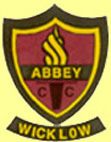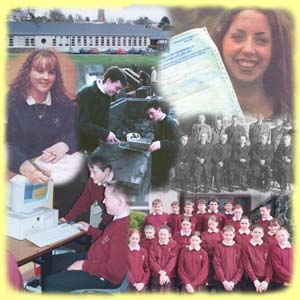Aims:
To create a well functioning network, i.e. involve students and
teachers of all partner schools to actively take part in Workshop
Europe and its project activities. Teachers and students are involved
actively in the planning and making of the project through the possibility
for own activity ideas and communication via email and phone, chatrooms
as well as project meetings.
Workshop Europe has three main themes/subgroups: Economy, Religion,
Culture, plus everyday life at school and at home for all participants.
Economy: Marketing and exchange of regional products.
Partner schools in: Austria (Ybbs and Wieselburg), France, Italy
Subjects involved: Commercial subjects, Languages, Biology
Religion: Importance of Religion for Society "Your religion
and the religion of others"
¢ Impact of religion on daily life, especially on family
life, man-woman-relationship, education, the use of religious symbols
and the importance/frequency of religious activities. Difference
with atheist traditions too, also concerning:
¢ Religious festivities and customs accompanying our lives,
especially concerning birth, weddings, funerals.
¢ Dealing with the topics within a historical frame (development
of religion after 1945 within the families: generations of grandparents
and parents), multi- vs mono- or non- religious societies
Partner schools in: Poland, Austria (Ybbs), Sweden, the Czech Republic
Subjects involved: Religion, History, Civics, Philosophy, Languages,
Information and Media technology
Culture: Being European, what does it mean? Individually and as
a group?
¢ Getting to know a country or area also means getting to
know its culture. What are the ingredients that make up the European
culture and identity for young people of today?
Partner schools in: Sweden, Portugal, Ireland, Hungary, the Netherlands,
Slovenia, Italy, Poland, the Czech Republic
Subjects involved: Arts and Crafts, Architecture, Music, Dance,
Languages, New technologies
Everyday life: Online questionnaires, work at each school, communication
in special Workshop Europe chat room, summaries and reports published
on the web site. All partner schools participating.
We will collaborate and carry through concrete activities with
concrete results. The students and teachers go through the same
learning process: Prepare for and make a time plan with deadlines
and respecting it, learn to work individually and in groups also
internationally, using other languages, do research on the decided
theme, compare and view differences without forgetting the similarities.
The findings should be shared, evaluated and presented. The activities
enable an insight in and the possibility to try out and share different
methods as well as know-how among the participating institutions.
One of the major aims is also "teaching" the young and
grown ups how to be tolerant to other cultures, religions and ways
of life. To combat racism/anti-semitism/xenophobia. To develop a
European consciousness whilst maintaining regional/national identities.
More pupils will feel motivated to accomplish tasks within the project
since the results will be spread in other European countries. Pupils
and parents will be encouraged to discover their own region, do
research in libraries, ask older relatives etc. but also to learn
more about the participating countries and thus increase the multicultural
awareness.
The Workshop Europe network participants will inform and encourage
colleagues and pupils not directly involved in the project to be
more active. Information and presentations will reach parents, neighbouring
schools and local authorities too. The media work and the website
will enable a wider impact on a large group of people, and spread
the results further.
Economy:
Working together with local and national companies, expanding the
possibilities for international training for students. The students
can match their "school training companies" with the real
ones. They will get to know more about the way their European counterparts
work in terms of cultural similarities and differences and in term
of economic priorities (quality, delays, prices…) as well as
the promotion of regional products at trade fairs. Reinstate the
value of the cultural heritage and products within the regions,
local particularities. Stressing the value of activities linked
to vocational education in Europe.
Religion:
Large local impact through project activities, such as interviews.
International cooperation creates awareness and work against prejudice.
The use of materials produced during the project will make more
young people aware of Workshop Europe and the Religion sub-group
activities.
Culture:
The end products will be spread to all the countries involved in
Workshop Europe. Presentations and performances locally for as many
people as possible, making workshop Europe known to the larger public,
not only the school and its immediate neighbourhood.
Most important are the activities at each school enabling integration
of several subjects and the communication between partners. Workshop
Europe really means what the title states: A workshop in order to
create a sense of Europe.
Economy:
The pupils will have to
¢ select and agree on a range of products
¢ study the market and the price situation
¢ create an online catalogue,
¢ cooperate to deal with the products virtually as part of
the professional training
¢ work on merchandising their and their partners' products
¢ participate in local fairs with their local products as well
as with their partners' products
¢ and participate together in an international fair in a project
meeting with the different teams.
All this will be developed over the three years
Religion:
¢ Developing products and presentation techniques such as
photos- and sound documents on different events in life such as;
baptism, wife wooing, wedding procedures, funerals etc.
¢ Investigations, questionnaires, inquiries carried through
by the participating schools. Summaries made for comparison
¢ Using the common website as a platform, writing articles
for newspapers, using new technologies for presentations
¢ Representative study
¢ Cooperation with the University of Graz (worked on a similar
project in Southeast Europe)
Culture:
Getting to know other countries through culture. Working to learn
about the particularities that make up the identity of a country
culture-wise, seen through the eyes of a young person.
¢ Pair work and group work, international groups with different
tasks for each group.
¢ Theatre, Cinema, Music, Dance, Arts, Architecture, Language
and Literature workshops. Finding good and concrete methods of working
together on such wide topics.
¢ Information, pedagogical and activity report exchanges
¢ Study visits to cultural institutions, buildings or meetings
with cultural personalities important to the local, regional or
national identity.
¢ Competitions on different topics. International writing process
"Relay race" where each partner writes/illustrates .
¢ Publish articles in school newspapers and aim to reach also
local and regional media.
¢ Collecting written, video, and photographic material for
reports and presentations as well as
¢ Using New Technologies and getting in-depth knowledge on
presentation methods.
Project meetings: 1 annual planning meeting for all partners. Year
2-3, this meeting is also used for presentation and evaluation.
Each sub-group has its annual project meeting where pupils and teachers
work together on a special theme, different and developed from year
to year.
Other mobility such as head master visits, teacher exchanges, study
visits etc. should be carried through as a part of the project.
i.e. Teacher exchanges should be a true study of another school
system and activities with colleagues and pupils well planned in
advance. It should include a presentation of the own school and
-system and personal impressions as well as a report should be presented
on website.
Our Partners in WORKSHOP EUROPE
HANDELSAKADEMIE, HANDELSSCHULE UND HÖHERE TECHNISCHE LEHRANSTALT
für INFORMATIONSTECHNOLOGIE der Stadtgemeinde Ybbs an der Donau
Niederösterreich
AUSTRIA
www.hakybbs.ac.at
Lycée Professionnel Jean Moulin
Bretagne
FRANCE
GYMNÁZIUM JANA AMOSE KOMENSKÉHO
North Bohemia
CZECH REPUBLIC
www.gymdubi.wz.cz
HÖHERE BUNDESLEHR- UND FORSCHUNGSANSTALT
FRANCISCO-JOSEPHINUM
Niederösterreich
AUSTRIA
www.josephinum.at
J. L. SEAGULL Szakképz? Iskola az OM azonosítónk,
ha kell: 032 309
Észak-Magyaroszág
HUNGARY
www.seagull.hu
ŠKOFIJSKA GIMNAZIJA A.. M. SLOMŠKA MARIBOR
Štajerska
SLOVENIJA
www.slomskov-zavod.si
I LICEUM OGOLNOKSZTALCACE IM. KAZIMIERZA WIELKIEGO
Wojewodztwo Lodzkie
POLAND
www.1lozdwola.pl
SCHOLENGEMEENSCHAP VENLO EN OMSTREKEN
Valuascollege locatie Casinoweg
HOLLAND
www.valuascollege.nl
ISTITUTOTECNICO COMMERCIALE E PER PERITI AZIENDALI E CORRISPONDENTI
IN LINGUE ESTERE RUSSELL-MORO
Piemont
ITALY
www.portascuole.it
|




